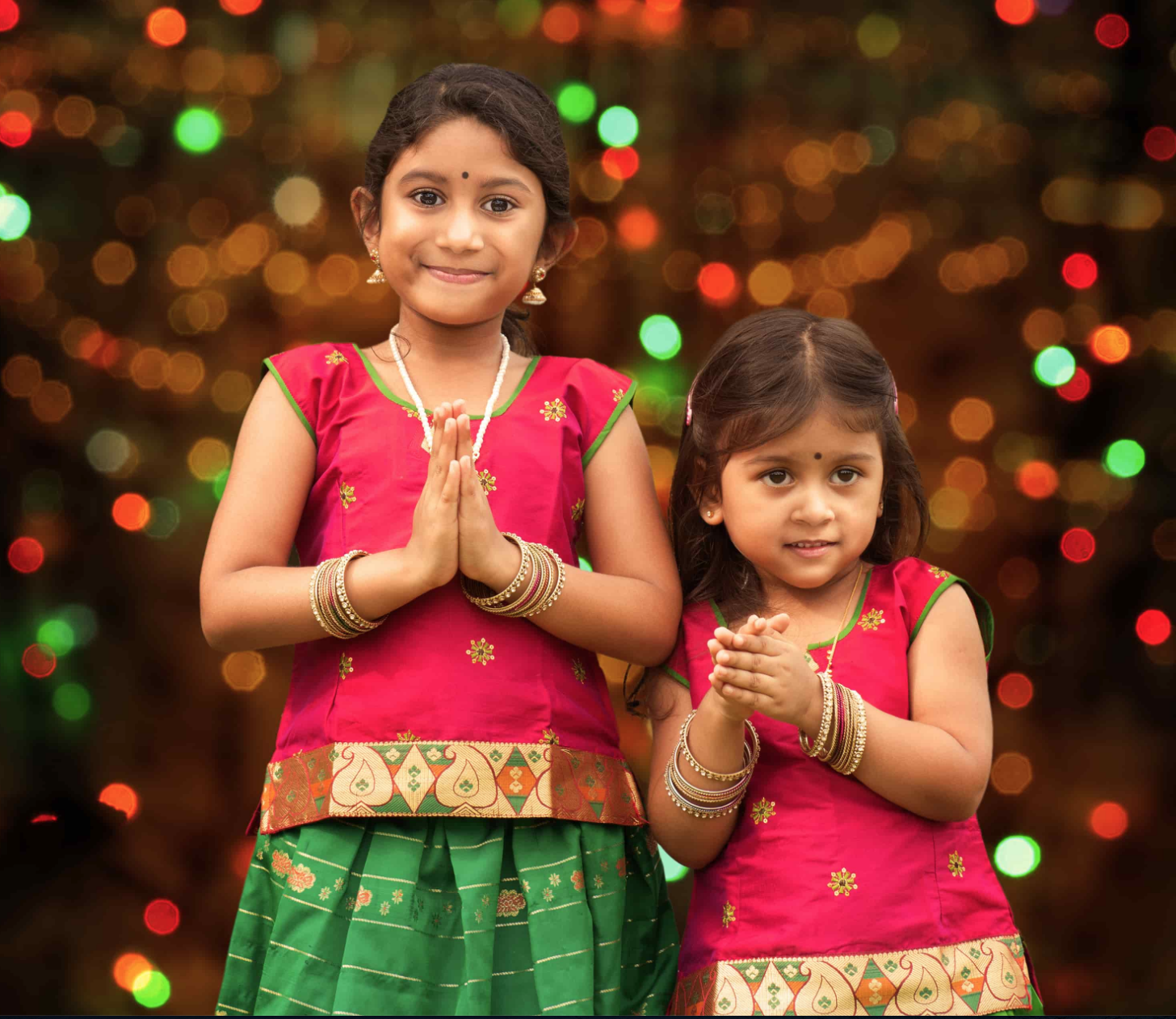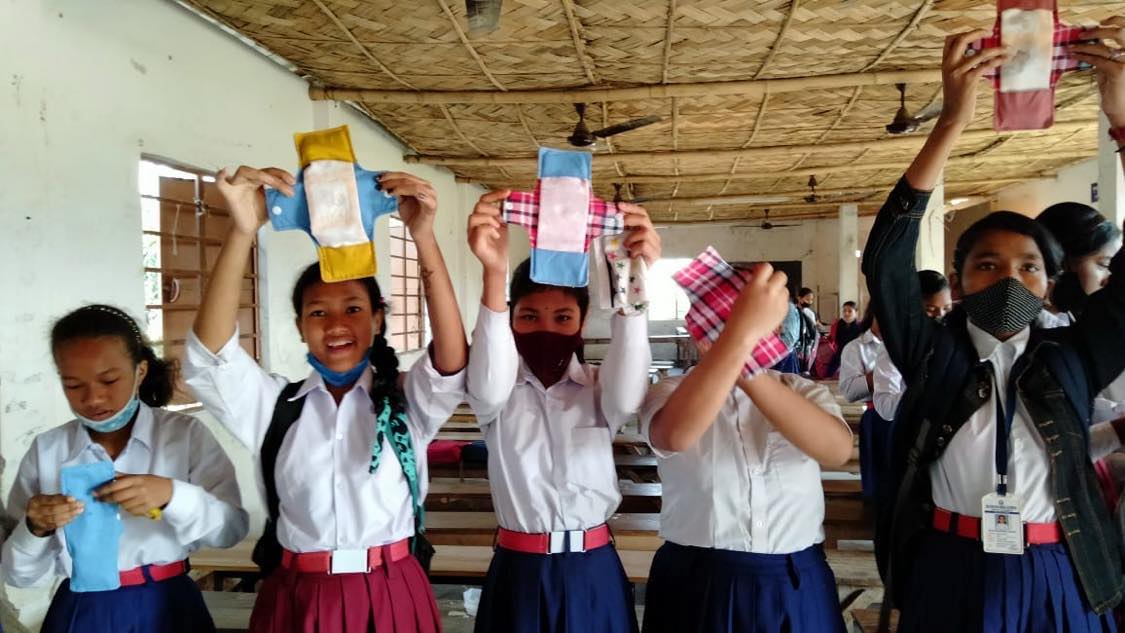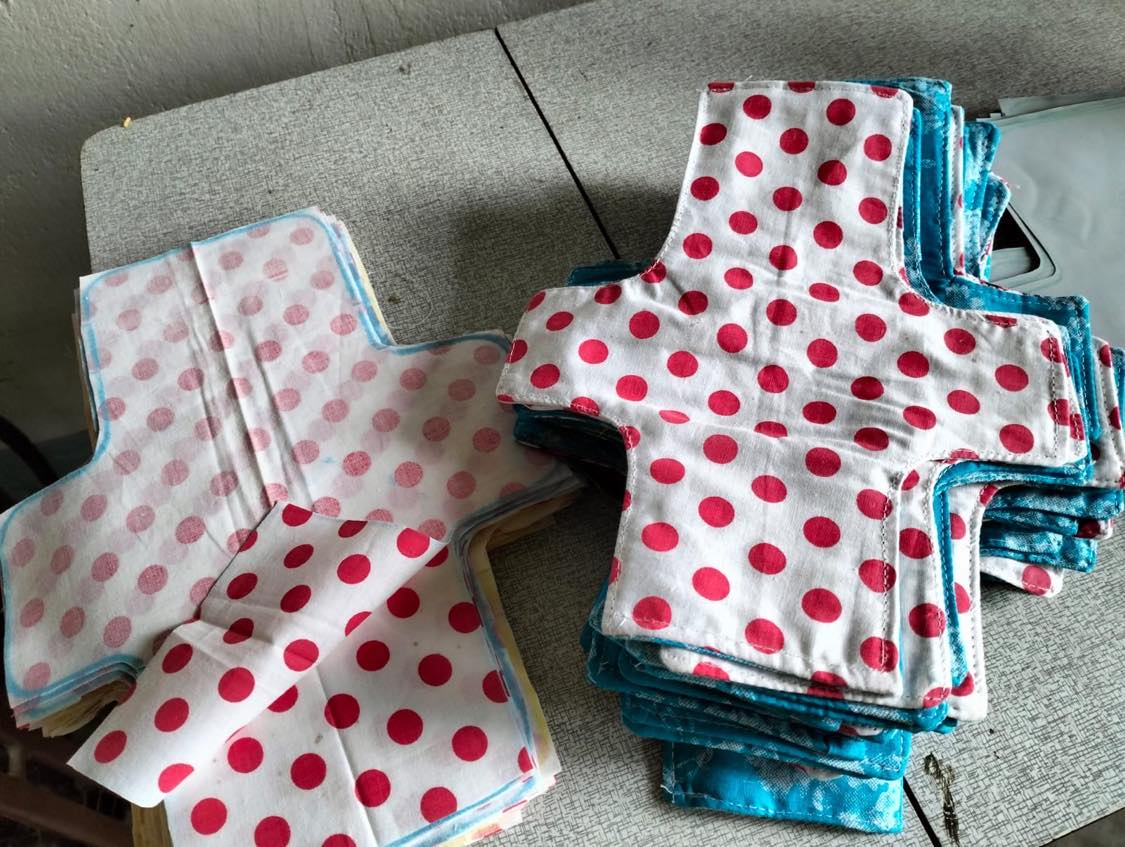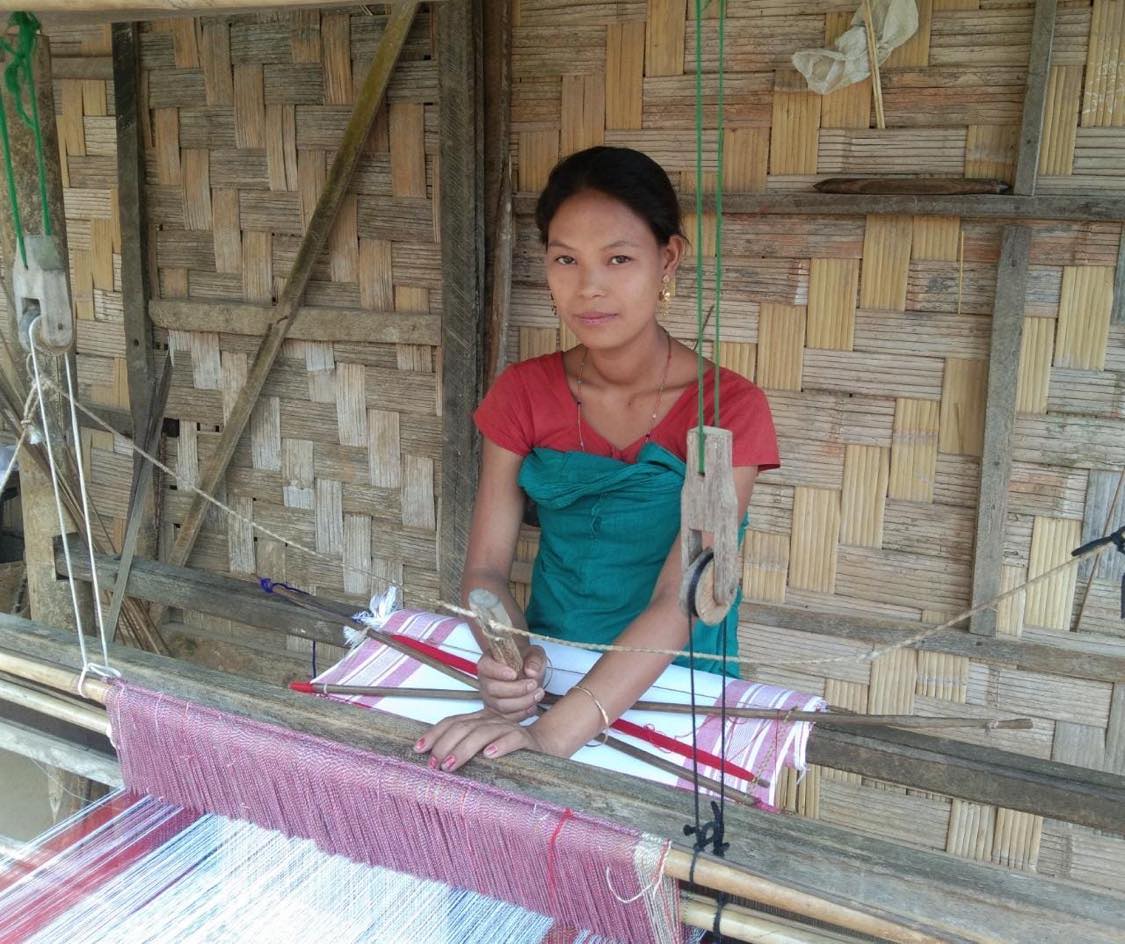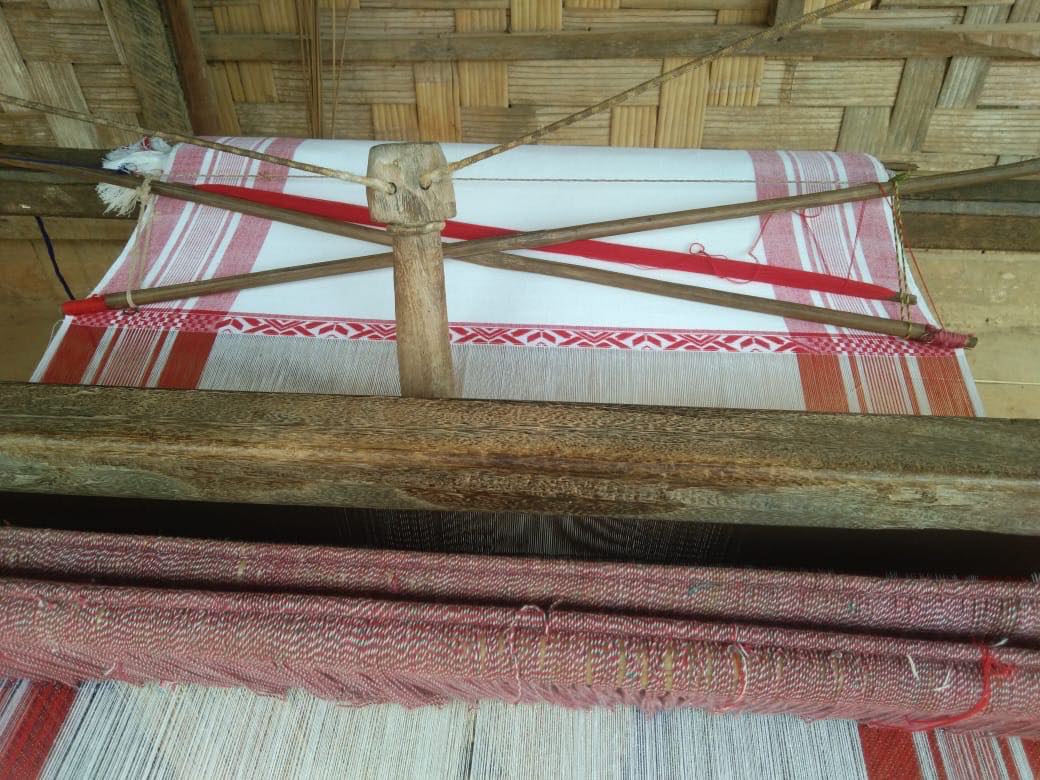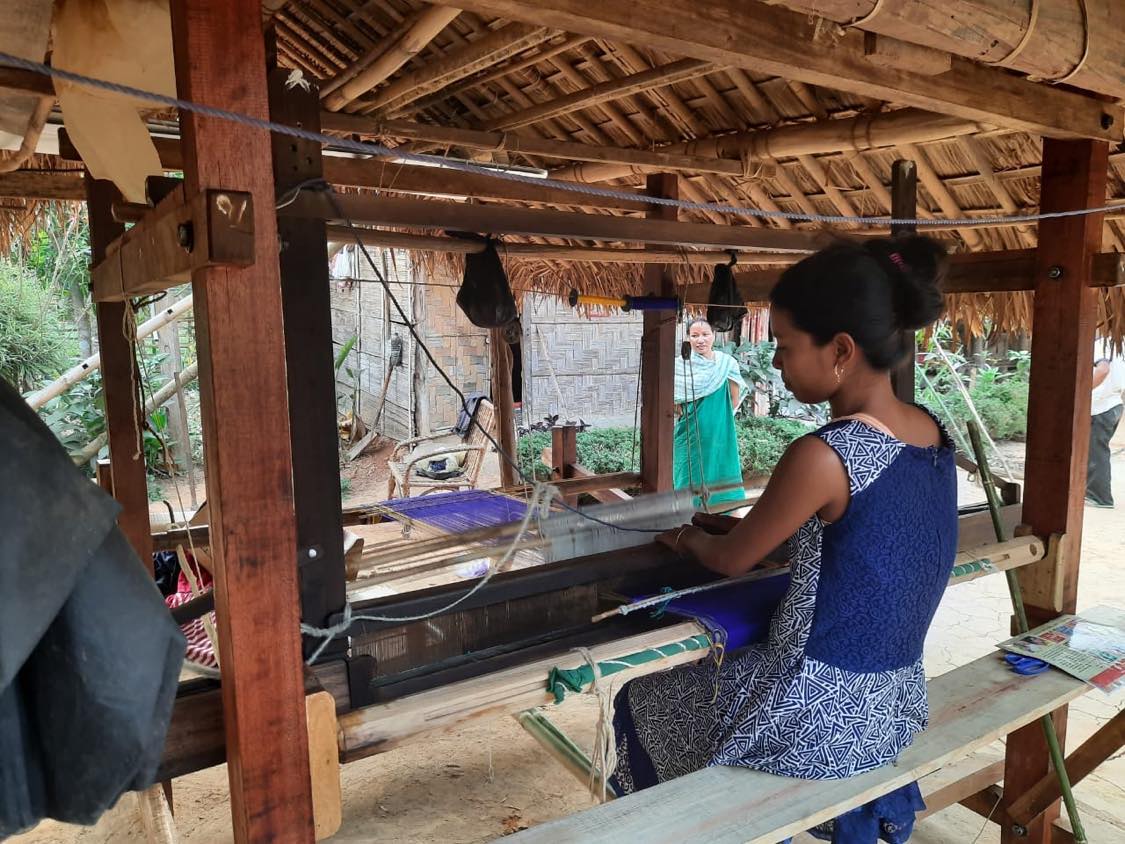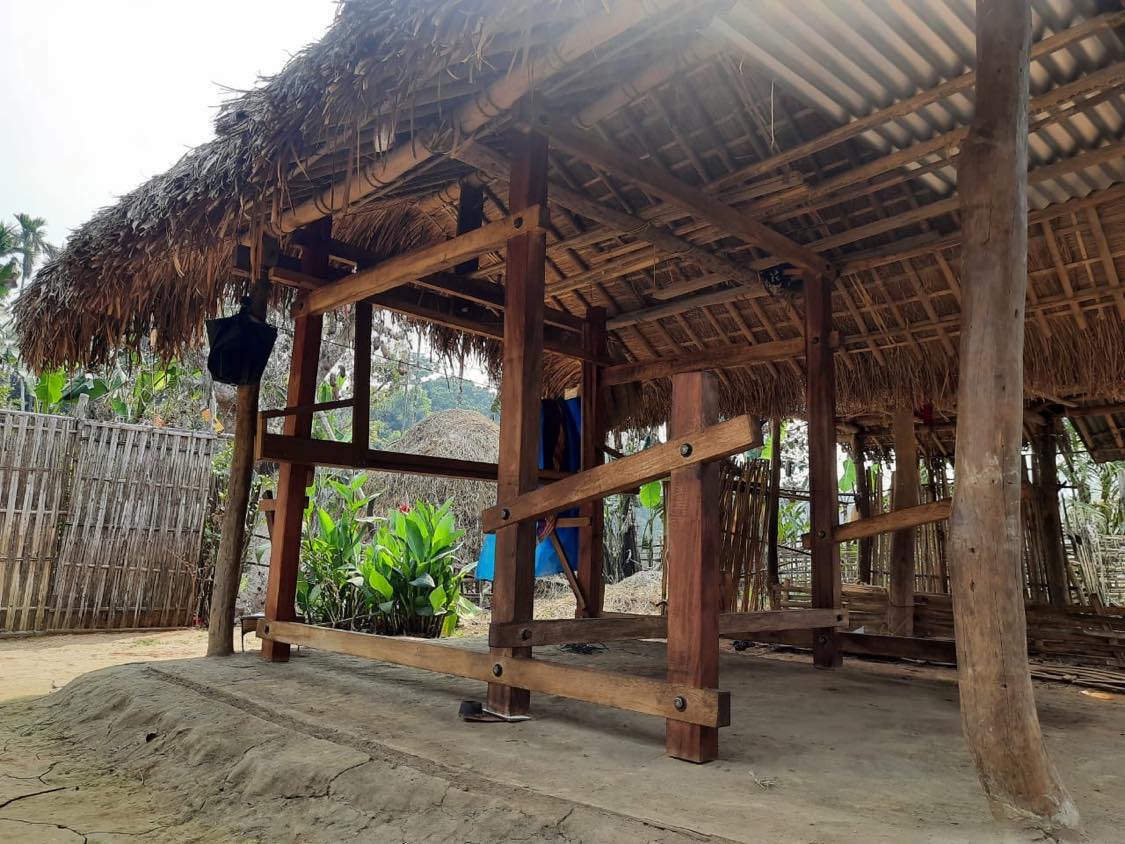Location
Guwahati, India
Delhi, India
Project Start Date
Spring 2020
Spring 2024
Partners
Parijat Academy
Programs
Create and distribute eco-friendly, reusable sanitary pads so women and girls in rural areas have access to menstrual health education and support while providing Parijat students with skills training. Create a textile social enterprise for women living in extreme poverty to alleviate food insecurity.
Provide residential, counseling, and education services and support for at-risk children with families experiencing challenges such as substance misuse or domestic violence so they can begin to heal and collectively and overcome trauma.
Country Context
Approximately one third of all children living in extreme poverty live in India, which directly correlates to high rates of child trafficking, child labor and other forms of exploitation. In addition, women and girls (in rural areas especially) are often forced to stop going to school when they start menstruating because they lack access to affordable and hygienic menstrual products and adequate menstrual health education. Due to the impacts of COVID-19, many of these communities also continue to face food insecurity and poverty.
Project Background
Access to menstrual education and health products in Guwahati, India
Near the city of Guwahati is Parijat Academy, a school for children from underprivileged backgrounds who live in the small town of Pamohi. Founded in 2003 by Uttam Teron and his wife Aimoni Tumung, Parijat has grown from assisting 4 students to nearly 500, and has evolved beyond providing primarily formal school education into areas such as vocational training and menstrual health education and support (e.g. awareness-building on menstrual health, hygiene, sanitation, environmental concerns, etc).
Women and girls in and around Pamohi have minimal access to menstrual awareness and health, which exacerbates dropout rates for girls during puberty. Even if the information was accessible, the issue of menstruation taboo and cost of menstruation products prevent many women and girls from addressing their menstrual needs.
The state of Assam overall has very limited access to menstrual health education and sanitary napkins. Data from the latest National Family Health Survey (NFHS) indicates the use of sanitary pads among Indian women in rural areas is an average of 48.5% (and was 57.6% for the country overall).
More often than not, women and girls must use whatever they have available in or around their households during their menstrual cycles, including unwashed and unhygienic cloths that can lead to a variety of health complications.
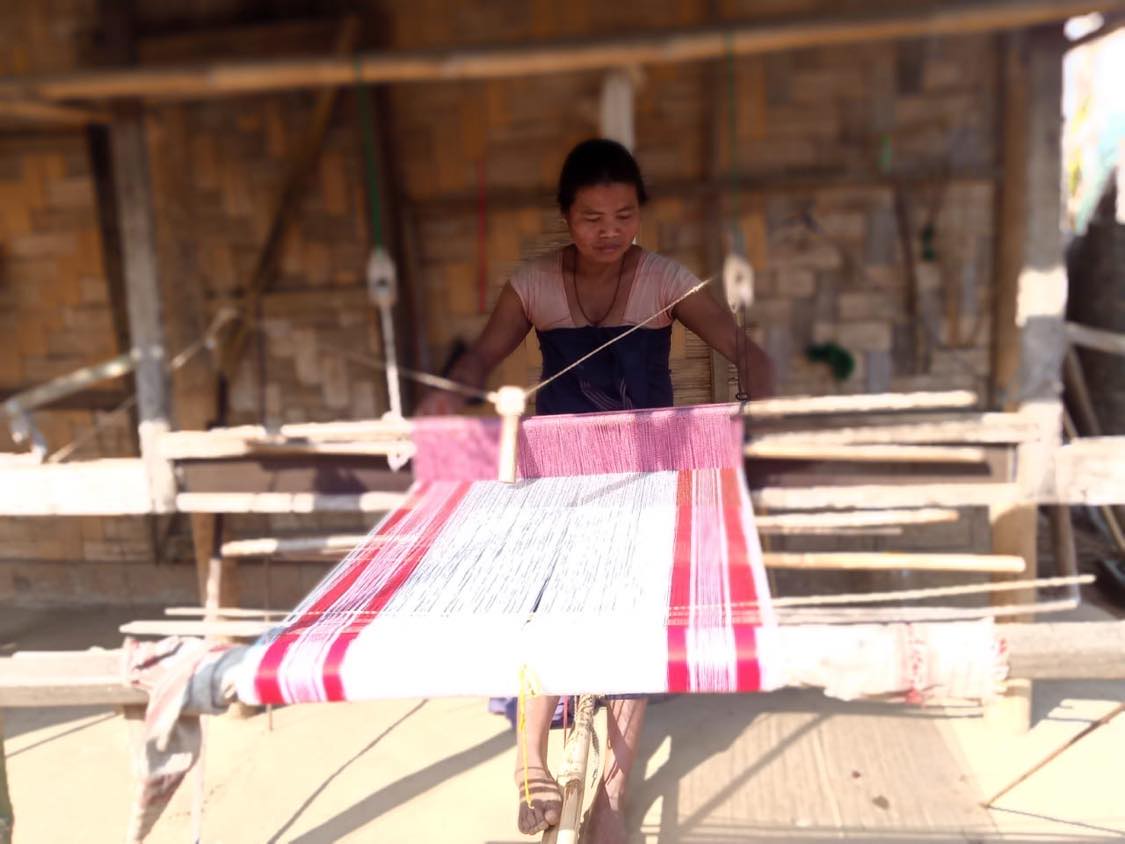

Parijat creates community success
Seeing the need in their communities, Aimoni and Uttam initiated the sanitary napkin project to create reusable, eco-friendly sanitary napkins for local girls and women. The project also involves training a handful of students and teachers on how to make hygiene kits and menstrual supplies. Each kit contains washable pads that are made of two parts: a leak-proof shield and a super-absorbent liner. The pads dry fast and can be washed easily with very little water. Kits are affordable and customized according to community needs. They often contain a number of additional essentials such as soap, hand towels, hygiene information packets, and face masks, among other items.
Since February of 2020, WECO has provided the funds for 8 students and 4 teachers at Parijat to receive skills training to make and distribute approximately 10,000 sanitary pads to over 2,000 women living in 7 nearby villages.
In January 2022, WECO additionally began an income-generating initiative for rural women weavers who make textile goods to sell in the market. Each artisan is compensated up front for what she produces, and all items are sold by an intermediary working with Parijat who ensures they receive a fair market price for their crafts. WECO supplies the necessary resources and raw materials to keep the project running, including providing each women a monthly salary that doubles their family’s average income.
If you’d like to learn more about Parijat and their sanitary pad project, please visit the WECO Facebook page or Parijat website.
Child protection and empowerment in Delhi, India
TARA India combats child exploitation in communities experiencing extreme poverty in Delhi. Launched in 2008, their multidisciplinary and devoted team provides residential programs for 70 children in need of care and protection with their TARA Boys, TARA Girls, TARA Tots, and TARA Big Birds programs. Over time, they have evolved their individualized residential care programs to include preventative efforts to strengthen and keep families together, offering an alternative to the systematic institutionalization of children in India. The TARA Outreach Center aims to strengthen vulnerable families and prevent their children from ending up in institutional care. Established in 2019, it provides classes for over 100 children to supplement their government schooling along with skilled social work support for families experiencing challenges such as substance misuse or domestic violence.
TARA has adopted a two-pronged approach to child protection: response services for the most extreme cases, and preventative services to address root causes and break harmful cycles. The team works closely with relevant institutions to ensure proper care and developed a Training Center to provide workshops on best practices for child protection and childcare in India.
If you’d like to learn more about TARA India and their child protection programs, please visit the TARA website, or the WECO Facebook page for project updates.
